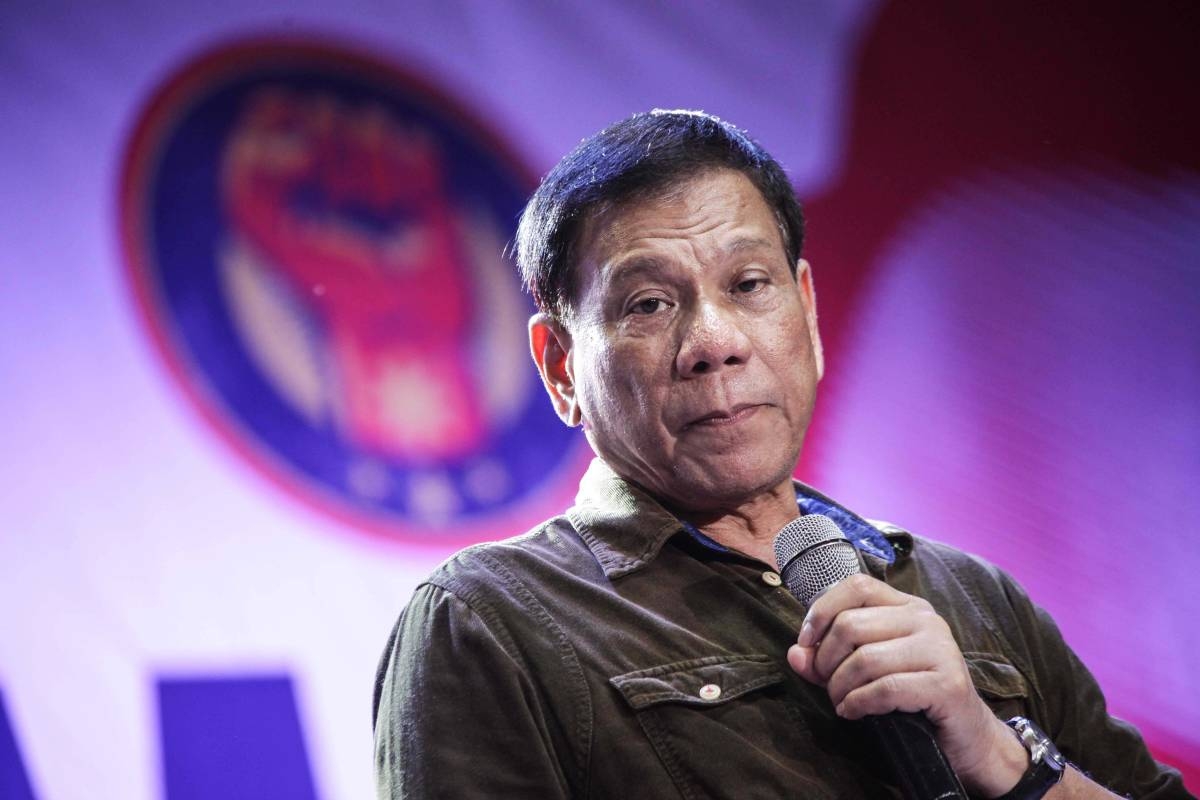Former President Rodrigo Duterte has recently expressed his dissatisfaction with the Movie and Television Review and Classification Board (MTRCB) for suspending his program aired on the Sonshine Media Network International (SMNI). Duterte argues that this suspension violates his constitutional rights, specifically his right to free expression and press freedom.
In a social media post on Thursday night, Duterte stated, “One, you have to be in gross violation of my constitutional right to free expression.” He further emphasized, “Second, of course, is the outfit I’m using as a platform for violation for press freedom.” Duterte firmly believes that the suppression of his right to exercise freedom of expression should not be allowed and that the right to free expression is absolute.
The former president views the suspension imposed by the MTRCB as a form of censorship. He asserts that any restriction on his ability to speak freely is a derogation of his constitutional right to free speech and expression. Duterte’s wing of the Partido Demokratiko Pilipino-Lakas ng Bayan (PDP-Laban) also condemned the suspension, considering it a clear affront to freedom of expression.
Aimee Torrefranca-Neri, the Secretary General of PDP-Laban, expressed concern over the chilling message sent to the Philippine media, particularly the broadcast sector, by the MTRCB’s actions. She stated, “This act of curtailing our freedoms presents a clear danger to our democracy.”
The MTRCB suspended Duterte’s program, “Gikan sa Masa, Para Sa Masa,” for 14 days following complaints regarding two of its episodes. Another show on the network also received a suspension. These actions have raised questions about the extent to which the MTRCB can limit free speech and expression.
In response to the suspension, the National Union of Journalists of the Philippines drew attention to the National Telecommunications Commission’s (NTC) decision to bar SMNI from airing for 30 days. The union stated that the NTC’s suspension, along with the red-tagging of the network’s programs, reflects attempts by the Duterte administration to weaponize the law. They argued that such actions have already caused harm, leading to the harassment, surveillance, and targeting of individuals associated with the network.
The union also called for reflection from SMNI and its supporters, urging them to consider their previous support for similar moves when they were being used against journalists and newsrooms. They emphasized the importance of consistent support for press freedom and freedom of expression.
It is important to note that the suspension of Duterte’s program and the subsequent actions taken against SMNI by the MTRCB and NTC are subject to local laws and regulations. While the former president claims a violation of his constitutional rights, the authorities responsible for these suspensions may argue that they are acting within their legal mandate to regulate media content.
As this situation unfolds, it highlights the ongoing tension between the right to free expression and the responsibility of regulatory bodies to ensure media content aligns with societal norms and values. It also underscores the importance of open dialogue and balanced approaches to address concerns related to media content without compromising fundamental rights.







